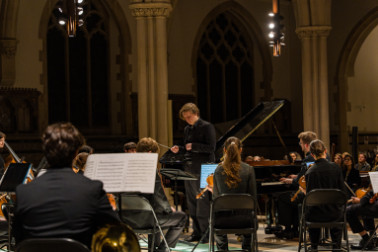The Cultures’ War: Ukraine’s “Temptations”
Imagine that you are The Human responsible for organizing the next 200 years on Earth. How will this image look like? Are we leaving in One Global Village, speaking one language (yours or your preferred one)? Are we leaving in small autonomous communities, but constantly interacting with each other? Were any of the nations finally integrated/assimilated into the “correct” one? Did any of the nations/communities come to existence in one form or the other, despite not having their own state so far?The way you decide to organize the World will reflect the Culture you’re coming from and what is comfortable for you. It will be wise to accept the idea that there will be other people that will argue in favor of organizing the World in the totally opposite way, as they value opposite things. One thing that can’t be ignored is that the Humans have become more and more aware of themselves, their individual uniqueness, their personalities, their needs and their Cultures. Blocking this trend is something that not even North Korea or Eritrea can achieve anymore. Going further, because people are so interconnected and have access to so much information from all over the world, including news, art in all its forms, and ways of thinking, the biggest opportunity one superpower has is to make its Culture as attractive as possible. Assuming that humanity has at least another 200 years on this Earth, let’s briefly evaluate the positions of some of the current superpowers in the Culture’s war and some of the developments that are not really helping them in the long run.The US managed to focus for the past century on the individual, to explore his needs, his personality, and then they have created products and services in order to satisfy them. By emphasizing the need to succeed, it drove its Culture to be very expansive (excluding warfare), allowing individuals to promote (most of the times involuntarily) their culture in all the corners of the world where this was possible. Another important element was the huge investment into the film and music industries, which took them all over the world, conquering the hearts of the people from various countries. The downside of this culture, however, is the constant focus on “business” in the name of which several countries from Latin America and Middle East were badly affected, making people from those countries resent anything that is connected to this culture. The 2nd biggest disadvantage is the loss of the “family” nucleus, which makes people not able to focus on the long term and see things beyond their lives. Short term orientation doubled by the focus on business enables businessmen to take control over the country with populist promises and then challenge concepts like “global warming” with thin arguments. Not developing long term focus will waste all the advantage that this Culture has gathered in the past century. “We have to win more wars” might have been a good foreign politics slogan half a century ago, but nowadays it is just wasting the Cultural advantage the US has gathered, raising disapproval even where there is no obvious reason to do so. Russia is characterized by the loyalty of its people in very harsh times throughout the history. The strong collectivism allowed the connections among its people to overcome any threat from the outside, regardless how powerful that was. Although the cultural side in terms of art is much deeper than the one of the US, this part was hardly capitalized, and because of the restrained nature of the culture, its film industry excelled mostly in philosophical, existential productions that were not attractive to the masses outside of this culture. Also, by failing to ensure a decent comfort for the majority of its people (both physically and psychologically) it has alienated some of its brains and creative people, driving them to other Cultures where they have brought their contribution. The sad part is that these people living in foreign cultures feel there alienated and empty but nostalgic and still not wanting to return in the “corrupt home”. Collectivism is an advantage against an outside threat, but it is a big disadvantage when you’re dealing with a fluid world in which you can’t really draw the line and point out who or what exactly is the enemy. Individuals supporting Russia against NATO, while leaving in a NATO country, is one of the cognitive dissonances that people don’t notice, although they feel it in the form of a vague emptiness. The best way to understand Collectivism is in the incapacity to help people from outside of Russia that have no connection with it and that are not fighting other groups of people. Bullying just because others from other superpowers are doing it, or because “shame” is felt for the past decades, is not the way to win the Cultures’ war. Moreover, by bullying, Russia loses any further possibility to create truly trustful relationships with outside partners. The biggest blind spot is in considering the other cultures as being unitary, as Russia perceives itself and as the others perceive it. When people from a smaller nation that is bullied, decide individually that they don’t want to speak the Russian language anymore and go through extensive efforts to disconnect themselves from it, just because they don’t want to have anything to do with that superpower (although they grew up speaking it), one can imagine how much harm this does long term on the attractiveness of this culture. Although it is very fulfilling for any Russian citizen to be part of a “strong country”, it is naive to think that the current way of “influencing” can make the majority of the people from other countries/territories share this feeling after “integration”. Sooner rather than later the individual citizens of this superpower will manage to get over their cognitive dissonance of desiring a “powerful country” and wanting in the same time to leave the country because of the high level of corruption. A “Powerful country” and corruption go hand in hand and just migrating and supporting the “powerful country” from a more democratic system will become both obviously hilarious and dangerous for the host country. The biggest advantage however, lays in its huge cultural heritage and finding a way to use that it might actually restore some of the power that it has lost and maybe bring it back to being one of the main pillars of the new world. Without shifting the focus to Education, Culture and Economics, nothing lasting can be achieved. Sometimes, during a race one needs to make a pit-stop, fix the faults from the past (which come obviously with a cost), but which allow it further to continue the race and have real chances to become truly great. Germany did it, Japan did it. Re-writing history is not an option anymore, and “alternative facts” are just a short term way of manipulating angry people.Going further, China looks like the one that has understood in the best way how to win the Cultures’ war. In the past it has done its share of mistakes by hitting its Education system, and by using its hierarchical characteristic to drive dis-balances in its ecosystem, but it has learned its lessons and most importantly has learned from the other cultures by integrating fast some of the positive developments in the world. China used its cultural characteristics, enabling their people to travel in groups (the wise visa discounts for large groups) and allowing the foreigners to compete for doing business inside the country and leave their expertise in the country. Its culture allows it to focus long term and integrate fast new trends, becoming a strong player in many fields including in green energy, the internet of things and others. Foreigners are learning the language and are teaching their kids the language so that they can be successful in getting a bigger part of business in this fast developing market. So far these three superpowers are still not using to the maximum the advantages of Culture as you can associate each of them with different aggressions in their regions. As long as warfare is part of expanding the influence, it will hit back with an exponential cost, sooner rather than later.They are all multicultural and multiethnic and this comes both with an advantage for where the world is heading to, but also with a disadvantage because of the frictions generated by the Cultural Differences between them. These frictions are the least dangerous for the system in the US (with all its transparence), simply because it is an individualistic culture. For the collectivistic superpowers these frictions might be devastating, but I’m sure they’ll get to understand their Culture and how it integrates into an interconnected world before it is too late. The other cultural aspect, the hierarchical one, is used to a much better advantage in China than in Russia, as people don’t need to be energized against an outside “enemy”, but it would be in their wisdom to put their own culture work for their advantage. The other Western European cultures, although not so expansive, but much more wise, have kept their elements of attraction, including maintaining focus on a good standard of living for their people and on Human rights throughout different crisis. Their biggest advantage is limiting warfare as much as possible and funding Education in the rest of the world. So, where does Ukraine stand in this Cultures’ war? It is definitely “forced” to empower more its people, to get their unique creative energies, so from the point of view of focusing on the individual and his or her needs it definitely does more than it did in the past. Unfortunately it also shifts to implementing actions that correspond to some of its short term tendencies instead of focusing long term. One hundred years of culture can’t be erased just like that, and assuming that all the individuals share the same feelings towards the Russian language is just wishful thinking. This subject is so emotional that no foreigner can possibly understand it, but creating a strong cognitive dissonance is not the answer that will help Ukraine long term (there are better chances to call the other spoken language the Kyivian-Rus language, than to pretend that it “will go away” naturally). I'll tell you a secret: the Russian language dose not belong to the Russian citizens, in the same way as the English language does not belong only to the Americans or the English people, not to mention the ownership for the Spanish and the Arabian languages and others. However, these languages (and any language in general) are huge Conveyors of Culture so whoever uses them for that purpose wins the most on the long run. Unfortunately, anything that is done publicly related to this in any direction, will be picked up by the corresponding propaganda channels and twisted in the necessary direction, so the work has to be done at the mentality level. Overall, the Future for all the nation-states (Ukraine included) looks like the “chaos” from the EU, where all the communities are allowed/stimulated to promote their uniqueness for the economic benefit of the country and for the welfare of the individuals in each community, which is obviously not in the nationalistic direction. It would be a pity for Ukraine, in the current transition, to inflict wounds on itself that will surface ten years from now, just because it didn’t follow the wisest available example. Culture works as such, that sometimes it blinds people to believe that just by doing the opposite, although in similar ways, it should be enough to make things better, which of course it doesn’t. The Ukrainian culture has the capacity to do sudden changes for short periods of time, but if the changes are unnatural they will be reversible and will keep the country in a high state of oscillation, which will eat a lot of its so much needed energy. Understanding its culture (mentality) with its strengths and some of its undesired tendencies and applying the right systems could turn the country into the next star of Europe. Ukraine has two main choices: 1. to focus on the EU’s values, in all of their complexities, with all of its freedoms for the individuals, tolerance in all of its forms and develop educative programs adjusted to its culture and mentality so that in 5 -10 years it can uses its cultural diversity fully or 2. to focus its policies mostly “against” the outside threat with all of the available means and disregard parts of its population’s needs, along with its energy, that could end up collected by populists against the current trend. Wisdom is the answer and it’s not available to be cashed out in one mandate. Returning to the global situation, it will be very hard to estimate how the World will look like in 200 years, but for sure it will be the result of a Wise integration of opposite wishes. Although people from some nations have believed for the past 1000 years that the World is coming to an end “soon”, this is doubtful, so let’s make the best of our continuously increasing and healthier lives and leave something for our grandkids to enjoy too.







